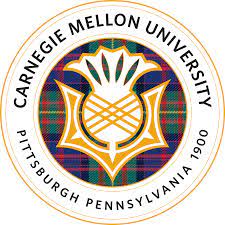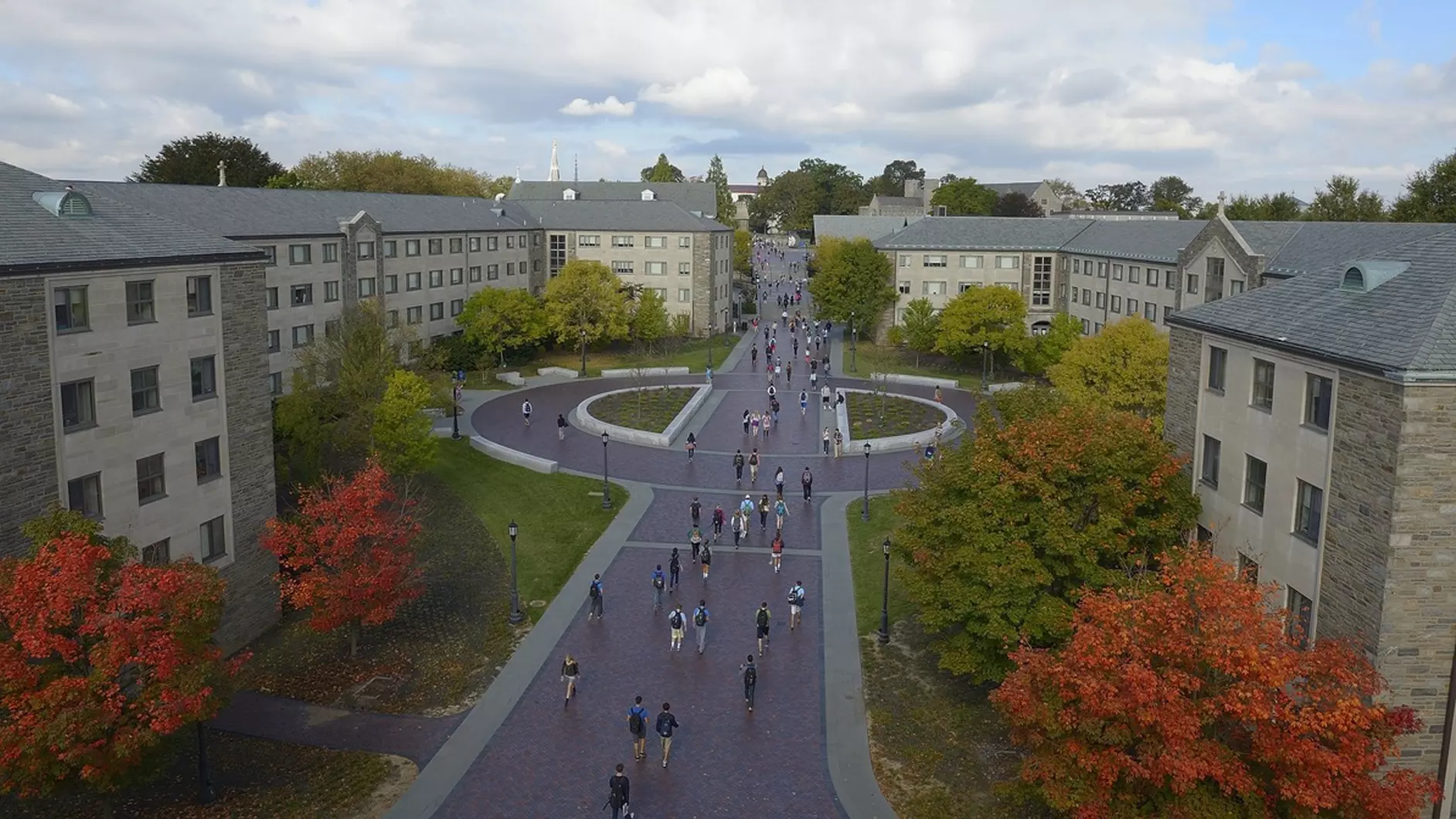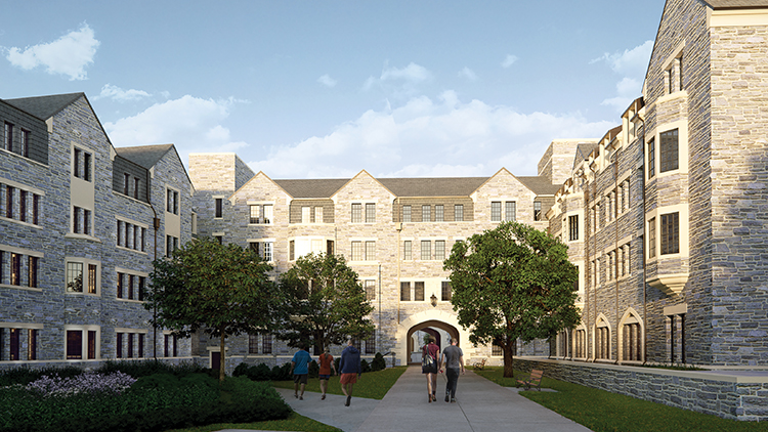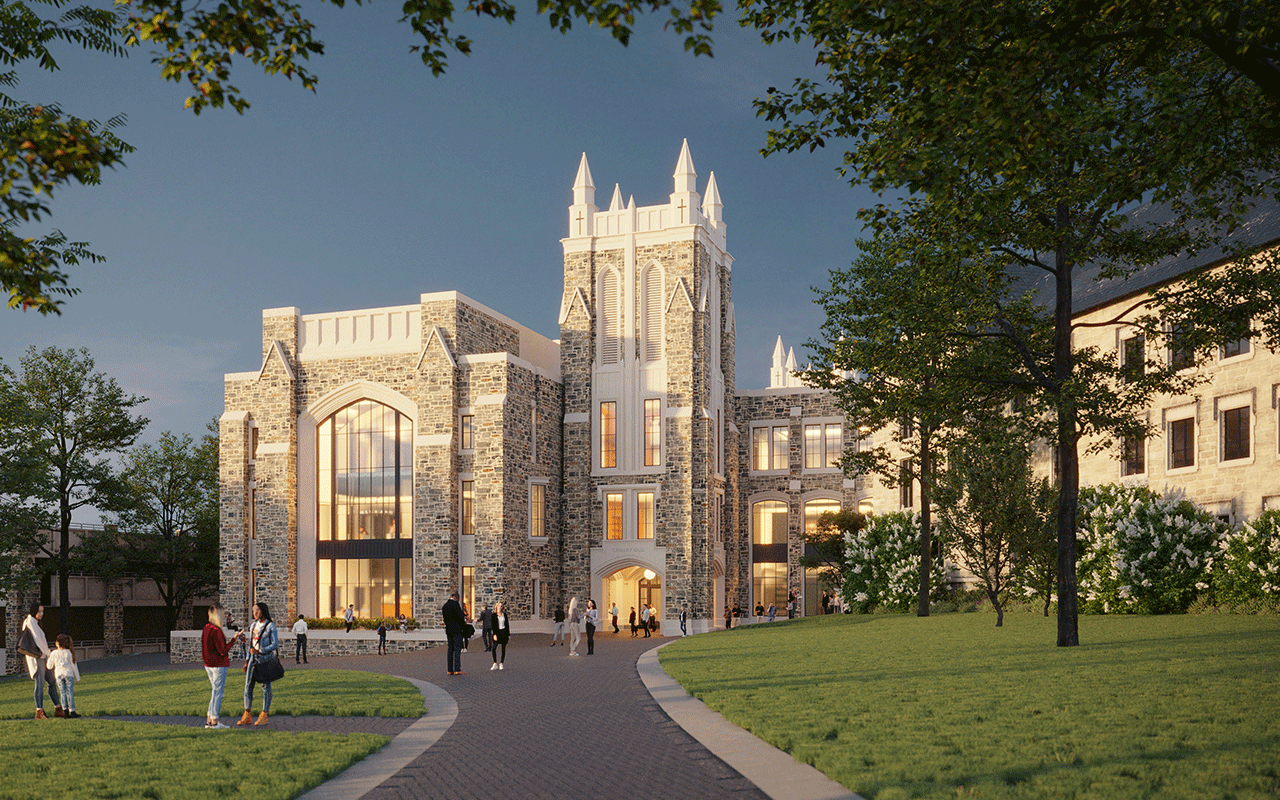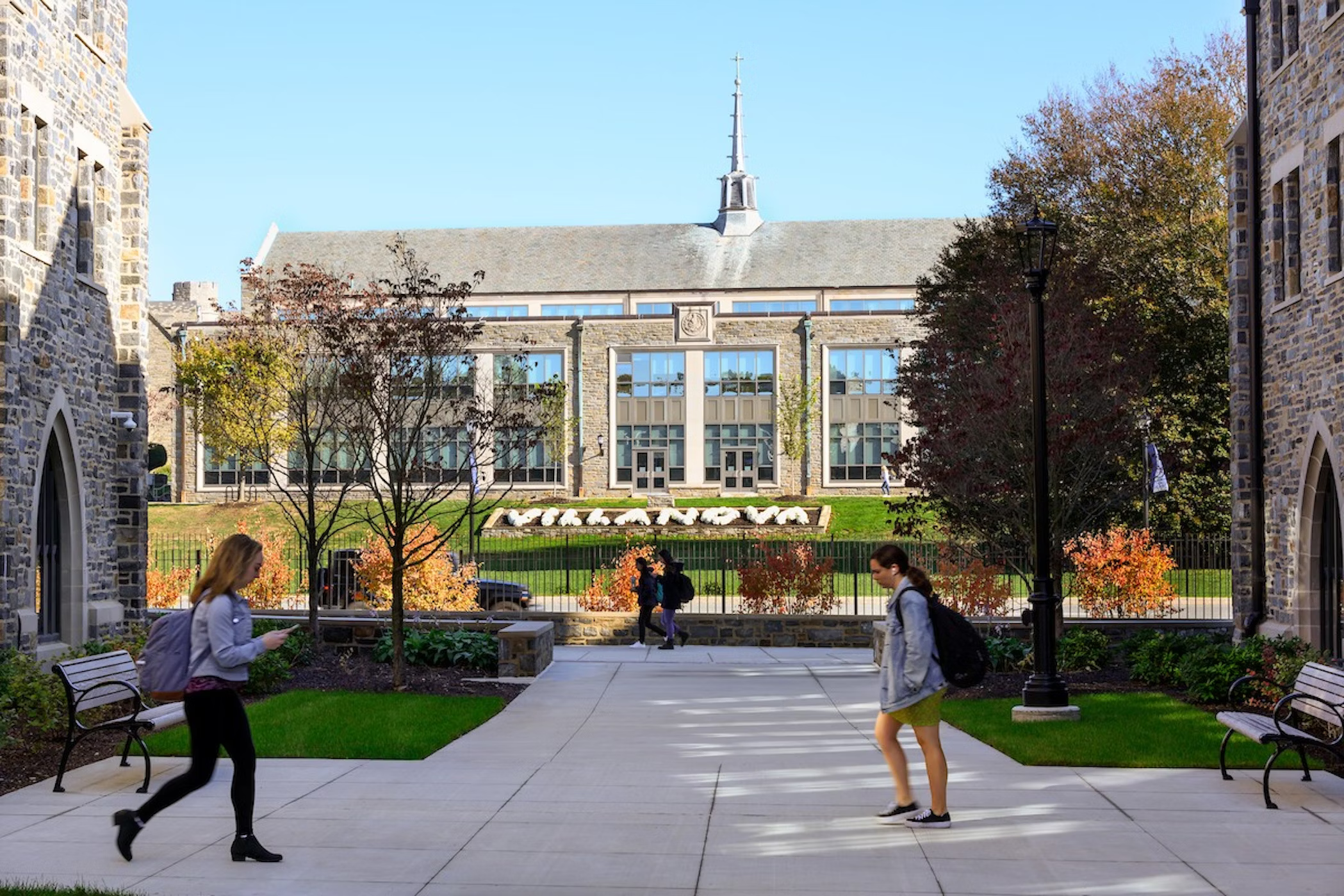About

University Type
Private

Pennsylvania,
United States

Year Established:
1842
Villanova University is a private Catholic research university in Villanova, Pennsylvania, United States. It was founded by the Order of Saint Augustine in 1842 and named after Saint Thomas of Villanova. The university is the oldest Catholic university in Pennsylvania and one of two Augustinian institutions of higher learning in the United States (the other being Merrimack College).The university traces its roots to the old Saint Augustine's Church, Philadelphia, which the Augustinian friars of the Province of Saint Thomas of Villanova founded in 1796, and to its parish school, Saint Augustine's Academy, which was established in 1811. It is classified among "R2: Doctoral Universities – High research activity".In October 1841, two Irish Augustinian friars from Saint Augustine's Church in Philadelphia, with the intention of starting a school, purchased 200 acres in Radnor Township, known as "Belle Air", the estate of the late John Rudolph, a merchant of Burlington, New Jersey and Philadelphia. The school, which was called the "Augustinian College of Villanova", opened in 1842.Besides the novitiate and college, the Augustinians had pastoral care of Catholics living within a fifteen mile radius. Bishop Francis Kenrick dedicated the chapel in 1844. Parished at Berwyn, Bryn Mawr, and Wayne developed from the Villanova mission.
Rankings

#58
USNews
Villanova University Program Rankings
- Business - Rank #13 (US News)
- Engineering - Rank #55 (US News)
Villanova University Highlights
FAQs
What are the most popular graduate programs offered at Villanova University?
At Villanova University, some of the most popular graduate programs include Business Administration, Law, Engineering, and Nursing. These programs are highly regarded due to their comprehensive curriculum and the university's emphasis on practical experience and professional readiness, making them attractive to students aiming for successful careers.
What is the Annual Cost of attendance at Villanova University?
The annual cost of attendance at Villanova University for the 2023-2024 academic year is approximately $76,000 USD, which includes tuition fees of about $58,000 and cost of living expenses around $18,000. Converting this to Indian Rupees, the total comes to approximately ₹62,00,000 INR (rounded to the nearest hundreds), based on the current exchange rate of 1 USD = 81.58 INR.
What Financial aid and scholarship options are available at Villanova University?
Villanova University offers a variety of financial aid options including need-based grants, scholarships, and loans. Students can apply for financial aid by submitting the Free Application for Federal Student Aid (FAFSA) and the CSS Profile. Additionally, merit-based scholarships are available and typically require no separate application; students are automatically considered upon admission based on their academic achievements and extracurricular involvement.
What is the reputation and ranking of Villanova University?
Villanova University enjoys a strong reputation, particularly for its College of Engineering and Villanova School of Business, which are frequently ranked among the top programs in the nation. For instance, its College of Engineering is renowned for its commitment to innovation and hands-on experience, while the Business School is highly praised for its rigorous curriculum and extensive alumni network.
What is the campus culture like at Villanova University?
The campus culture at Villanova University is vibrant and inclusive, marked by a variety of cultural fests like the annual St. Thomas of Villanova celebration and numerous campus events including speaker series, concerts, and theater productions. Students can engage with over 260 clubs and organizations that cater to a wide range of interests including academic, cultural, recreational, and service-oriented groups.
What are the housing options at Villanova University?
Villanova University offers a range of housing options including residence halls, apartment complexes, and townhouses on campus, designed to accommodate different student needs and preferences. For off-campus living, popular nearby areas include Wayne, Bryn Mawr, and Ardmore, which are favored for their proximity to campus and local amenities, offering students a balanced and accessible living environment.
.png)
